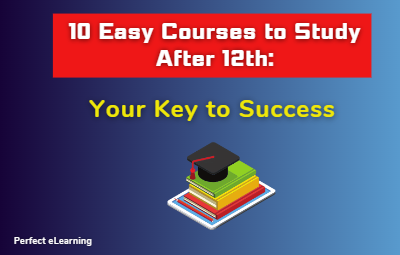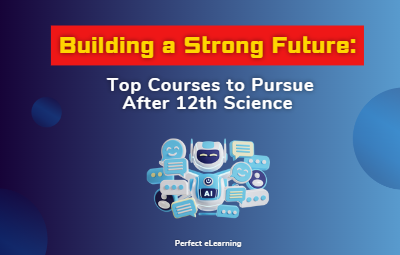

Crafting your commerce journey and making the right course selection after completing your 12th grade is crucial for a successful future. The decision you make at this stage can significantly impact your career prospects, shaping your professional trajectory. With numerous courses and specializations available, it is essential to navigate through the options effectively to ensure a fulfilling and rewarding career.
1. Understanding Your Interests and Aptitude
Assessing your interests and passions is the first step in choosing the right course after 12th. Take time to reflect on your strengths, hobbies, and subjects that genuinely intrigue you. Identifying your aptitude and skills will help you narrow down your options and find a course that suits your abilities.
2. Researching Different Courses and Specializations
Conduct thorough research to explore various courses and specializations available in your desired field. Consider factors such as curriculum, career prospects, and future growth opportunities. Look into the different specializations within each course to gain a better understanding of the possibilities and prospects in each area.
3. Seeking Guidance and Counseling
Consulting with career counselors, mentors, and professionals in your desired field can provide valuable insights and guidance. They can help you explore different career options, assess your aptitude, and provide recommendations based on your aspirations. Attending career fairs and seminars can also provide opportunities to gather information and network with professionals.
4. Assessing the Market Demand
Understanding the market demand for specific skills and qualifications is crucial in selecting a course that aligns with future job prospects. Identify emerging industries and sectors and research the skills that are currently in demand. By aligning your course selection with market trends, you increase your chances of finding relevant job opportunities after graduation.
5. Considering Personal Goals and Aspirations
It's essential to define your long-term career goals and align your course selection accordingly. Consider the skills and qualifications required to achieve those goals and evaluate if the chosen course provides the necessary foundation. Choosing a course that aligns with your aspirations ensures that you stay motivated and passionate about your chosen career path.
6. Exploring Alternative Education Paths
Apart from traditional degree programs, consider alternative education paths such as vocational training, certification programs, or online courses. These options provide practical skills and experience that can complement your academic qualifications. Additionally, internships and practical work experience can offer valuable insights and help you make informed career choices.
7. Consulting with Parents and Mentors
Involving your parents and seeking guidance from experienced mentors can provide different perspectives on your career choices. They can offer valuable insights, support, and share their wisdom based on their own experiences. However, remember that the final decision should be yours, as you are the one who will be pursuing the course and building your career.
8. Planning for Higher Education and Postgraduate Studies
If you plan to pursue higher education or specialize in a particular field, research universities and colleges that offer relevant courses. Understand the admission requirements, application processes, and scholarships available. Having a long-term roadmap can help you plan your educational journey effectively.
9. Developing a Long-Term Career Roadmap
Create a vision for your future career growth and set both short-term and long-term goals. Break down your goals into actionable steps and identify the milestones you need to achieve along the way. A well-defined career roadmap will keep you focused and motivated throughout your journey.
10. Taking Action and Making the Decision
After consolidating all the research and considering personal preferences, it's time to make the final decision. Prioritize the options that align best with your interests, aptitude, and long-term aspirations. Initiate the application and enrollment process for the chosen course, ensuring you meet all the requirements.
Conclusion
Crafting your commerce journey by selecting the optimal course after 12th grade is a significant decision that sets the stage for a successful future. By understanding your interests, researching different courses, seeking guidance, and considering market demand, you can make an informed choice. It's important to align your course selection with your long-term goals and aspirations. Remember that the decision-making process may take time, but investing effort and thought into selecting the right course will pay off in the long run.
Frequently Asked Questions (FAQs)
Q: What if I'm still unsure about which course to choose?
A: If you're uncertain about which course to choose, consider seeking further guidance from career counselors, mentors, or professionals in your desired field. They can provide insights and help you explore different career options based on your interests and aptitude.
Q: Can I change my course after starting?
A: While it's possible to change your course after starting, it's generally more advisable to make an informed decision before enrolling. Changing courses can impact your academic progress and may result in additional costs and delays in completing your education.
Q: How important is it to consider job prospects while selecting a course?
A: Considering job prospects is essential when selecting a course to ensure there are relevant career opportunities available after graduation. Research the demand for specific skills in the job market and choose a course that aligns with those trends.
Q: Should I choose a course based on current market trends?
A: While considering market trends is important, it shouldn't be the sole factor in your decision-making process. Focus on your interests, skills, and long-term goals while also considering the market demand for specific qualifications.


